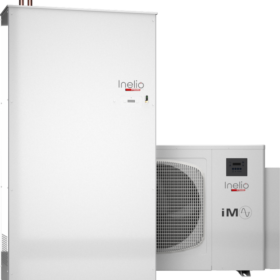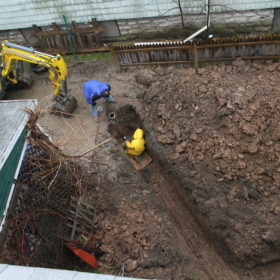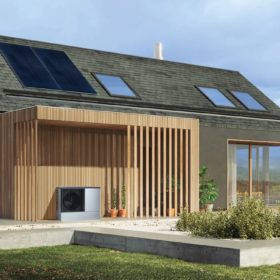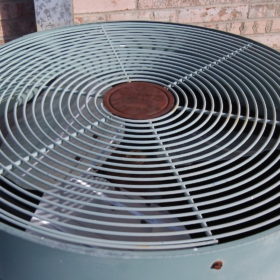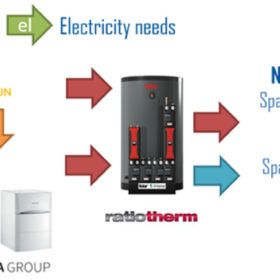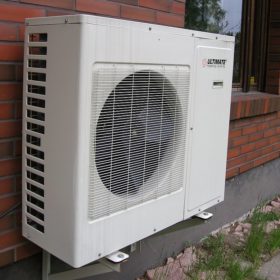Residential heat storage system uses PV electricity for space heating, hot water
France-based FHE Group has developed a 2.5 kWh storage device that can store electricity as heat during the day and release this heat at night to power a heat pump for space heating and hot water. According to the manufacturer, it can retain over 95% of its initial performance after 20,000 cycles.
NREL’s online tool to assess viability of geothermal heat pumps
The research institute has upgraded its REopt web tool to include ground-source heat pump technologies. US homeowners will now be able to simulate the impact of converting conventional heating and cooling systems to geothermal heat pumps.
Viessmann and 50 Hertz integrate heat pumps to stabilize German grid
The partner companies say smart heat pumps can offer flexible capacity that network operators can use for safe operation and households could also benefit from a reduction in electricity prices.
PV-powered heat pump system for commercial swimming pool heating
Researchers in Jordan have designed a solar-assisted heat pump system for swimming pool heating at a hotel in the coastal city of Aqaba. They found that the system has a payback time of only 1.94 years and that total profits after ten years of operations may reach around $1.88 million.
Non-technical factors influencing market acceptance for solar heat pumps
The lack of proper business models, high upfront costs, and long payback periods are the key barriers to enabling the wider adoption of solar-powered heat pumps, according to recent research. Other factors reducing market acceptance are a lack of information on the technology and sociodemographic factors like public perception and peer effects.
Cost optimal solutions for residential solar-powered heat pumps in cold climates, isolated areas
A U.S.-Swedish research group has investigated the complex economic relationship between PV and heat pumps in cold climates under four different levels of electrification. It found that, compared to propane, solar heat pumps can reduce reduce costs by up to 20% and carbon emissions by 30%.
System design for greenhouses relying on PV and ground source heat pump
Proposed by Turkish scientists, the system design consists of combining rooftop PV with a ground source heat pump in a greenhouse used for tomato, cucumber and lettuce cultivation. The solar array operates under net metering and grid electricity is used when PV generation is unable to cover demand. According to their findings, the system payback time ranges from 2.6 to 7 years.
European consortium develops ways to couple heat pumps with solar panels
The Sun Horizon consortium has started to collect performance data on two pilot projects that combine heat pumps with solar systems using hybrid panels on homes in Riga, Latvia. The solution features a heat pump for space heating and domestic hot water and PVT panels to produce power for heating and domestic appliances, with excess power fed to the grid.
The world’s largest seawater heat pump based on CO2 as refrigerant
Swiss-headquartered technology corporation ABB is supplying integrated electrical infrastructure for the construction of a 50 MW seawater heat pump in Denmark. The heat pump technology will be provided by German specialist MAN Energy Solutions.
Ireland announces plan to install 600,000 heat pumps by 2030
The move is part of the National Development Plan 2021-2030, which aims to increase the share of renewable electricity in the generation mix up to 80% and to allocate around 15.5 GW of wind and solar capacity through an auction scheme.
